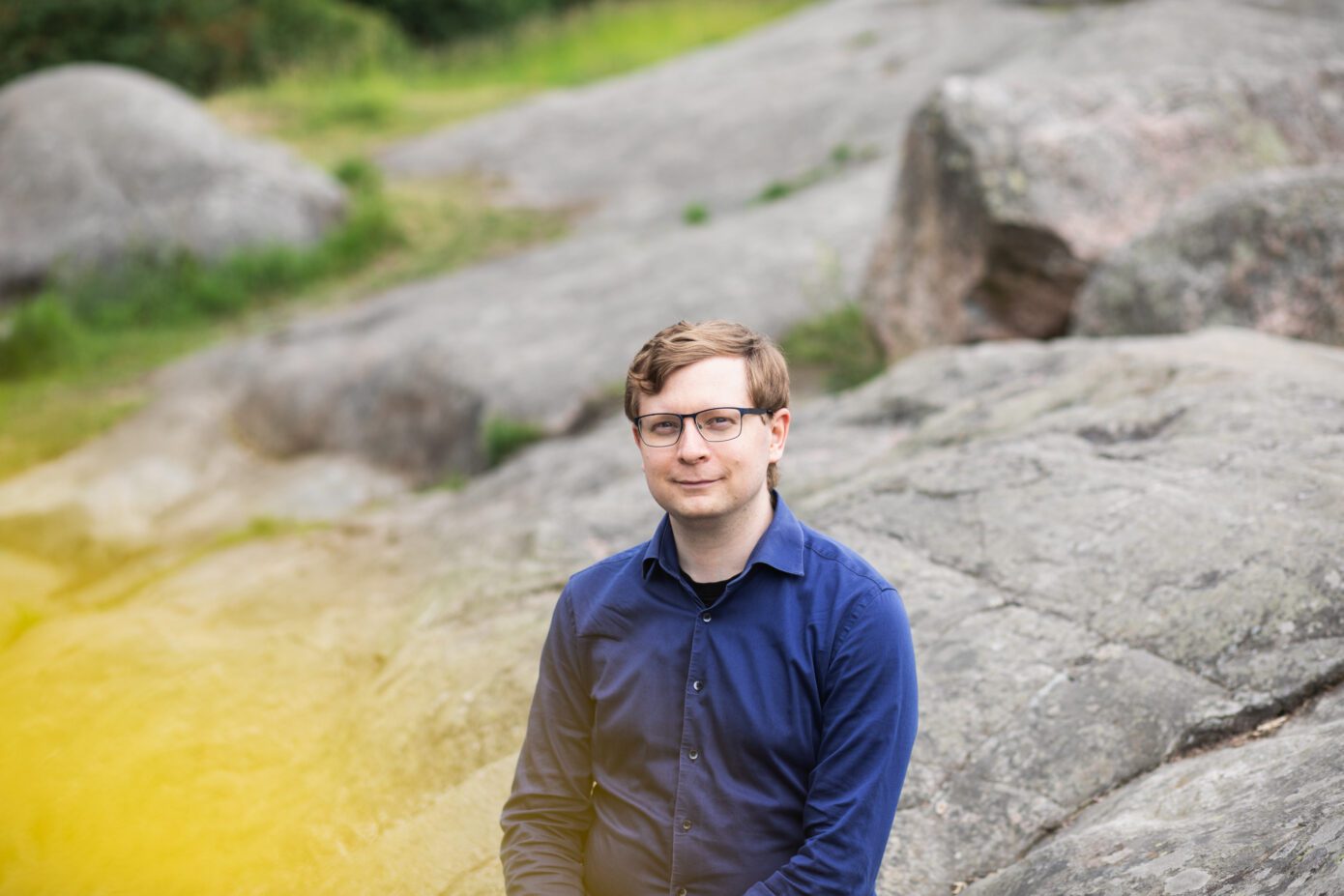Juuso Suutari, who is serving as the Head of Administration during the parental leave of Paula Eriksson, has a spark for research which he channels into studying history in his spare time. Suutari is also a staunch advocate for democracy, believing in its capacity to build an ecologically sustainable future.
Juuso Suutari, who are you and where do you come from?
“My path has taken me from active involvement in student organisations during my history studies to financial management roles in various organisations. My career thus forms a very natural continuum. In my work, it has always been important to me to combine my expertise in financial management with a socially significant context. I have previously worked in party politics and in promoting democracy and multiparty cooperation. These themes remain very important to me. At Nessling, I have the opportunity to contribute to a more ecologically sustainable society through my work.
Alongside my work, my enthusiasm for history channels into various projects I work on in my spare time. I have always been fascinated by history as a kind of kaleidoscope where the same elements are constantly rearranged in slightly different ways. Situations and cultures change, but fundamentally, people remain the same and grapple with the same issues regardless of the century.”
What has it been like working at the Nessling Foundation?
“I enjoy being part of a team that works towards an important common goal. It makes the work very motivating. In administrative work, it is also rewarding to see the team functioning smoothly because I have been able to create optimal working conditions for them. The role of administration is to act as a bridge between people and systems. Rules are not unnecessary bureaucracy; they ensure fair and predictable operations.”

You are a staunch advocate for democracy. Why is a strong democracy crucial for building an ecologically sustainable future?
“There is noticeable frustration in environmental discussions about the ineffictiveness of democratic decision-making. Sometimes, one even hears arguments suggesting that authoritarian systems are better equipped to handle the current crisis. However, the idea that the end justifies the means rarely leads to the desired outcome. An enlightened dictatorship is an illusion based on a violent and unjust system.
At the same time, democratic institutions and processes are being dismantled in many places, even though democratic decision-making needs more support now than ever. Solving global crises requires the contribution and commitment of everyone, not just a select few. This can only be achieved through democratic participation. At its best, democracy can also be agile. The COVID-19 pandemic and Finland’s decision to join NATO are recent examples of how issues that seemed politically impossible a week earlier can be brought to political consensus a week later. Regarding the ecological crisis, it is high time for a similar political shift.”
What can we learn from history to build an ecologically sustainable future?
“History offers numerous examples of societies that either succeeded or failed in adapting to environmental changes. Failure in some cases might have stemmed from the societies’ inability to change deeply ingrained cultural practices and beliefs. Cultures facing crises must reflect on what core values they are unwilling to abandon, even if it threatens their existence. Is it necessary to maintain certain ways of life, like private car ownership, even as the world crumbles around us?”
You have many history-themed ideas laying in the drawer, waiting to be published. Can we expect any new peace from you soon?
“I have been developing an idea for a history podcast, where I delve into intriguing and obscure historical details or claims and trace their origins. At the same time, I also aim to explore the broader question of how random the accumulation of historical knowledge can be – how a claim becomes accepted as history through repeated assertion. So, if you are interested in diving into peculiar historical claims, stay tuned!”
Pictures: Annukka Pakarinen

